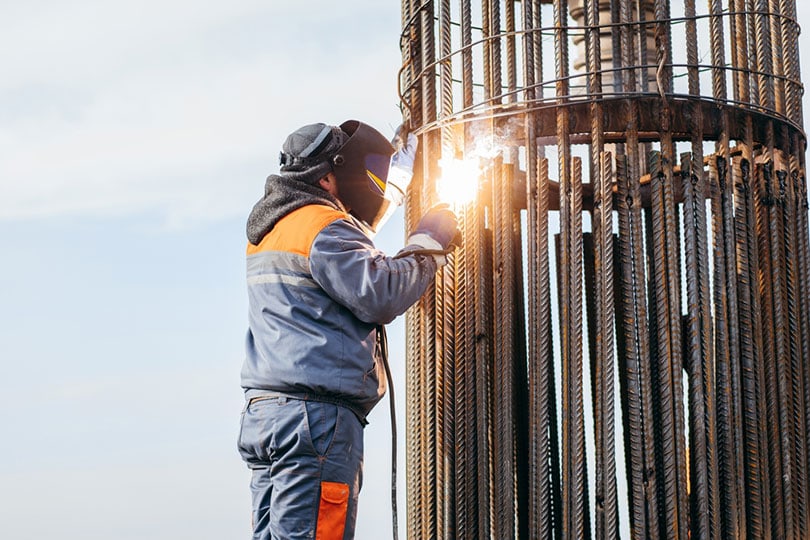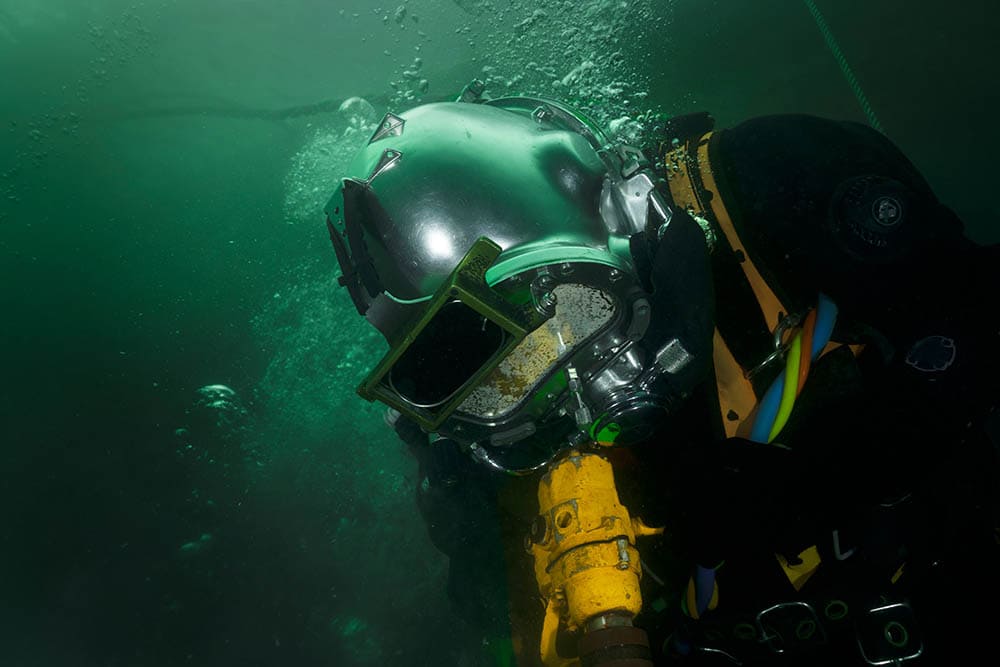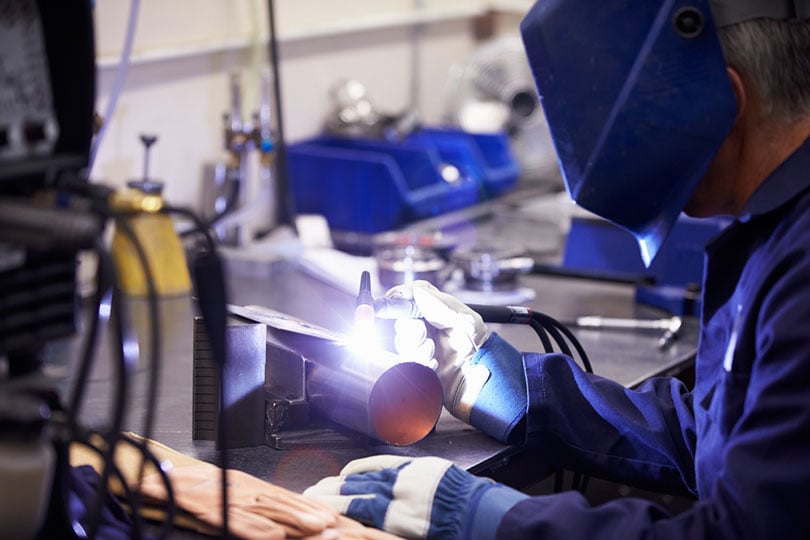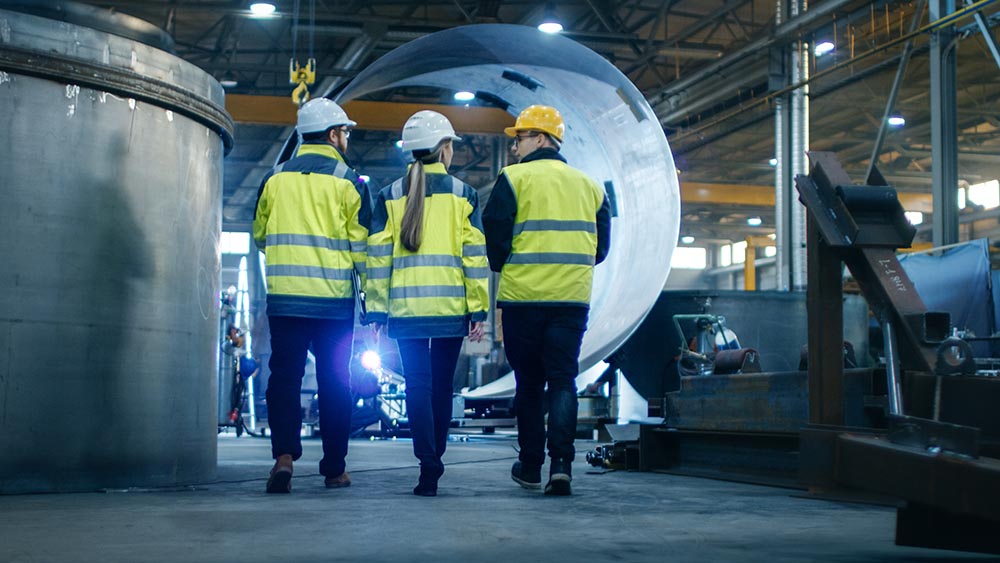How Much Are Welding Salaries in Canada? (2024 Update)
Last Updated on

If you are a welder in Canada looking to find out what your typical year-end earnings will be, stick here! We have everything you need to know about welding salaries in Canada.
It’s no secret that welding is an in-demand trade, one of the most sought-after skills in Canada. It’s growing more popular every day. It offers employment opportunities and even better chances of self-employment. It is a magical industry that makes everything possible.
In this guide, we’ll look at the average welding salaries in Canada and everything pertaining to welding. So, let’s get right into it!
Job Duties of a Welder in Canada
A welder’s primary responsibility is to join pieces of metal together using a welding machine. Welders work in different industries but share the same duties.
- Read blueprints and other technical documents to ensure that welds meet specifications.
- Setting up welding equipment and ensuring that it’s functioning well.
- Fabricating metal components by welding together pieces of metal or welding with other materials.
- Cutting metal shapes using electric cutting torches, plasma torches, or power shears.
- Use handheld tools such as pliers to bend and shape metal components.
- Fabricating steel and other metals using manual or power tools.
- Use measuring instruments such as calipers and micrometers to verify the dimensions of workpieces.
- Soldering joint filler material onto surfaces to be joined.
- Use a handheld or stationary cutting tool to remove excess metal from parts after cutting with shears or plasma cutters.
- Fuse metal parts using welding processes such as GTAW (Gas Tungsten Arc Welding), FCAW (Flux-Cored Arc Welding), and SMAW (Shielded Metal Arc Welding). They also use GMAW (Gas Metal Arc Welding), Plasma Arc Welding, Oxyacetylene, and Resistance Welding to fuse metal parts.

Average Welding Salary in Canada
The average welding salary is $42,900 per year. But as with most professions, the more skilled a welder becomes, the higher the salary. The average annual salary for a professional welder is $55,962.
Entry-level welders earn $37,052 per year. It’s a good salary for someone who is just starting and has limited experience.
- Hourly Wages: $22
- Daily Earnings: $165
- Weekly Salaries: $825
- Biweekly Salaries: $1,788
- Monthly Salaries: $3,575
8 Highest-Paying Cities for Welders in Canada
Your job location plays a massive role in how much you earn. Some cities will pay more than others. It’s due to the living standards or demand for a welder in that area.
If you’re looking for a job as a welder in Canada, it’s helpful to know the highest-paying cities for welding jobs. Here are the most well-paid Canadian cities.
| City | Average Hourly Welding Salary | Average Daily Welding Salary | Average Annual Welding Salary |
| Fort McMurray, Alberta | $45.76 | $465 | $96,567 |
| Edmonton, Alberta | $33.31 | $338 | $70,304 |
| Calgary, Alberta | $33.17 | $337 | $70,004 |
| Nisku, Alberta | $29.88 | $303 | $63,060 |
| Saskatoon, Saskatchewan | $28.51 | $290 | $60,183 |
| Hamilton, Ontario | $26.21 | $266 | $55,324 |
| Mississauga, Ontario | $24.21 | $246 | $51,092 |
| Guelph, Ontario | $23.60 | $240 | $49,820 |

Primary Types of Welders in Canada and How Much They Earn Per Hour
There are many types of welders, and most of them pay well. Let us look at some popular welding jobs and their salaries below.
Structural Welder
Structural welders are trained to weld metal structures used in construction. These structures include buildings, bridges, and other large structures. They earn $29.84 per hour.
Production Welder
A production welder works in a production environment in just about any industry, including the construction and manufacturing plants. Their job is to weld pieces together using intense heat and at an efficient rate. They receive $22.21 an hour.
Underwater Welder
These are specialized welders working underwater. They weld at elevated pressures. The average hourly wage of underwater welders in Canada is $48.49.
Welding Inspector
Welding inspectors inspect welding work to ensure that it meets the set standards. They also examine bonds and connections between metals. The average wage of a welding inspector is $41.65 per hour.
TIG Welder
TIG welders use non-consumable tungsten electrodes to form the electric arc. Also, they use arc welders with an inert gas to carry out the GTAW (Gas Tungsten Arc Welding) process. They earn $24.46 per hour.
Oil Rig Welder
Oil rig welders work in the oil industry. They assemble and repair equipment used in oil drilling from the earth. They may also work on pipelines and refineries. The average hourly wage of an oil rig welder is $31.
Welding Engineer
Welding engineers are the professionals who design, oversee, and manage welding processes. They also train welders. Welding engineers ensure that all safety regulations and quality standards are met. A welding engineer in Canada earns $37.18 per hour.

Factors Affecting Welding Salary in Canada
Several factors affect a welder’s salaries, as seen below:
1. Experience Level
The more experience you have, the higher your pay will be. When you start welding, you might earn less than an experienced welder because you lack experience in this field. But, with time and practice, your skills improve, and so does your salary level.
Your salary will also increase if you advance in rank or obtain certifications. Here’s a breakdown of welding salaries based on the experience level.
| Experience Level | Average Annual Welding Salary |
| 0 to 2 years | $16,500 |
| 2 to 5 years | $22,000 |
| 5 to 10 years | $32,500 |
| 10 to 15 years | $39,700 |
| 15 to 20 years | $43,200 |
| More than 20 years | $46,800 |
2. Education Level
The more education you have in welding, the higher your pay will be. Welders with a post-secondary diploma in welding will earn more than those with no formal training or certification.
Here’s a table showing welding salaries based on the education level.
| Education Level | Average Annual Welding Salary |
| High School | $18,800 |
| Certificate or Diploma | $29,500 |
| Bachelor’s Degree | $49,500 |
3. Location
The location plays a crucial role in determining a welder’s salary. It’s no wonder welders working in Alberta earn more than those working in Ontario or Saskatchewan.
More companies are based in Alberta than anywhere else in Canada. It means more jobs for welders.
4. Company Size
Usually, large companies have more job opportunities. They also pay them more than their counterparts in smaller companies.
- Point to Note: All the figures displayed above are in Canadian dollars.

Do Welders in Canada receive Benefits and Bonuses?
Yes, welders in Canada receive benefits and bonuses. Some of them include:
Benefits
In some cases, welders can receive health benefits including dental and vision benefits. Usually, it applies to welders who have been employed for several years.
Bonuses
Some welders also receive bonuses for completing projects ahead of schedule or doing an exceptional job on a project. Bonuses may also be given when exceptional safety standards are maintained while working.
Bonuses for welders in Canada include performance-based, company performance, goal-based, and end-of-year bonuses.
How to Become a Welder in Canada
You can join a welding school if you have a high school education. In a welding school, you’ll gain practical experience and knowledge about welding. It’ll help you when you start working as a welder.
After completing training, you can get certification from the CWB (Canadian Welding Bureau). Then, you can work as an apprentice. Here, you’ll learn welding under the supervision of a seasoned welder.
The next step is to get certification as a journeyman. You’ll take a standardized test in welding. Also, you’ll qualify for the Red Seal Endorsement if you perform well in the exam. With the Red Seal Endorsement, you can work as a welder in many parts of Canada.
Final Thoughts
Now you know what a typical welding salary in Canada is. Welding is one of those skills you can apply in various career opportunities. You can apply for welding jobs in various industries, provided you have the right training. These industries include construction, manufacturing, and oil extraction. What’s more, you’ll earn more as you advance in this career field.
We hope you find this information relevant to your circumstances. It may give you the push you’ve been looking for to see what a career as a welder in Canada could bring!
See Also:
Featured Image Credit: Andrewshots, Shutterstock
